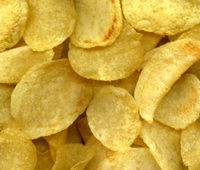The Sugar Factor
Diabetes Is Ranked the #7 Killer in America. Learn Why Sugar Has Been Declared The Most Addictive - Dangerous Substance On Earth.
Sugar Shock: The Lowdown on Sugar and Artificial Sweeteners
There’s nothing sweet about how much sugar people consume every day. According to the American Heart Association (AHA), the average adult in the United States takes in 22 teaspoons of added sugar a day, or a whopping 150 pounds a year, while teens pile in up to 50 teaspoons a day. "The amount is shocking," says Connie Bennett, author of Sugar Shock!, "and the potential health effects of excess sugar consumption are even scarier. Mounting evidence suggests that flooding your system with the sweet stuff can play a role in obesity, heart disease, and cancer. It can also impact how you look or feel, doing damage to your skin or altering your mood."
Is Sugar Toxic?
Sugar is the most addictive substance on earth. Its also the most dangerous and toxic substance anyone can consume. Sugar has similar affects on the brain like cocaine. Heart disease, cancer, diabetes type II and many more are contributed to processed sugar. Dr. Sanjay Gupta reports on new research showing that beyond weight gain, sugar can take a serious toll on your health, worsening conditions ranging from heart disease to cancer.
Type II Diabetes
Go deep inside your body to see how type 2 diabetes happens, what it does to your body—and what you can do about it. Diabetes expert Dr. David Katz of the Yale Prevention Research Center talks about the frightening future of diabetes: in just a few decades, one third of all Americans may have diabetes. See the pancreas, where insulin is produced. Real imaging data reveals the body’s inner anatomy slice by slice, from brain to base of spine. Dr. Cynthia Geyer of Canyon Ranch talks about how insulin resistance develops. View its results, as visceral abdominal fat builds up and chokes the vital organs. Discover the symptoms of type 2 diabetes and find out if you should be tested. See revealing images of various complications caused by diabetes.
How to Manage Your Blood Sugar
Avoid All High Glycemic Carbohydrates!





High glycemic starches and sugars, our favorite comfort snacks and foods, are the devil's most potent weapons of temptation to entice us to shorten and destroy the quality of our lives. High glycemic foods are rapidly metabolize (burned) by the body, driving up both blood sugar and triglyceride levels. A diet rich in high glycemic foods is the major cause of obesity, diabetes II, fatty liver, insulin resistance , cancer, and heart disease.
Sugar Feeds CANCER!! Sugar Feeds CANCER! Sugar feeds CANCER!!
Low Glycemic Index food (less than 55) - eat as much as you want.
Foods with GI index between 55 and 70- eat a very limited amount.
High Glycemic Index food GI (more than 70)- totally avoid !!!!!!!!!!!!!!
Understanding the Glycemic Index and Glycemic Load
A lot of people still think that it is plain table sugar that people with diabetes need to avoid. The experts used to say that, but the glycemic index shows that complex carbohydrates, like baked potatoes, can be even worse. The Glycemic Index ranks foods on how they affect our blood glucose levels. This index measures how much your blood glucose increases in the two or three hours after eating. When you make use of the Glycemic Index to prepare healthy meals, it helps to keep your blood glucose levels under control. This is especially important for people with diabetes, although athletes and people who are overweight also stand to benefit from knowing about this relatively new concept in good nutrition.
To find a specific food on the Glycemic Index, go to this link:
https://www.southbeach-diet-plan.com/glycemicfoodchart.htm
To find the specific calories of foods, go to this link:
The Deadly Dangers of High-Fructose Corn Syrup
This report will show you how the sweetness of high-fructose corn syrup comes with a dear price to your health, possibly worsening the illnesses you’re already experiencing! Without knowing it, the HFCS in your body may be setting the stage for health problems including: Metabolic syndrome. Learn why you should say no to HFCS-containing soft drinks and other foods that may cause this condition. Damage to your immune system. Acquaint yourself with how asthma, food allergies, multiple sclerosis and other immune system problems are triggered by use of sugars such as HFCS! Speed-up aging process. Know through this report how HFCS and other sugars and grains accelerate the aging process. A load of dangerous mercury poisons. Find out how mercury is found in samples of commercial HFCS, and get the shock of your life with the many life-threatening conditions mercury poisoning entails!
The Deadly Dangers of Drinking Diet Sodas
The Fruitarian Diet
CNN's Dr. Sanjay Gupta talks to Michael Arnstein, 'The Fruitarian,' an elite endurance athlete with a controversial diet. Five years ago, Arnstein—one of the best 100-mile runners in the country—became a fruitarian. "I read a book on low-fat raw fruit diet, based on fruits and vegetables,” the slight runner says a few feet from a street-side stand brimming with apples, oranges, pomegranates, mangos, and other unidentifiable-but-colorful fare. “It changed everything about me, almost overnight. I went really hardcore about it." The man, who says he was raised on McDonald's, was a solid ultra-runner before taking up fruitarianism. Now, he's elite. "I just ran 100 miles in 12 hours, 57 minutes. I'm in the top 10 all time, ever," Arnstein says, sounding astonished at his own fruit-fueled capacity.
Artificial Sweeteners Could Promote Diabetes
How often have we been faced with this decision? Artificial sweetener or real sugar ... Well, it might not matter. According to a recent study published in the journal Nature, using a zero-calorie sweetener isn't any better for you. Researchers in Israel found that consuming these artificial sweeteners can disrupt microbes, or good bacteria, that lives in the gut. This can cause higher blood sugar levels and eventually diabetes.
What Does Sugar Actually Do To Your Body?
The effects of sugar can take your body down a vicious cycle known as metabolic syndrome. UC Davis' Kimber Stanhope altered the diets of a group of volunteers for her study. Instead of her subjects eating food like rice, pasta or bread, she had them consume a sugary beverage. The effects on the body started in the liver and from there Stanhope explains how that set off a chain of responses in the body.
Tackling diabetes with a bold new dietary approach
Currently 100 million Americans are pre-diabetic or diabetic, and one in three kids born after the year 2000 will develop diabetes. Neal Barnard, clinical researcher and founder of the Physicians Committee for Responsible Medicine (PCRM), identifies the causes of this serious issue and advises us how we can fight these statistics.
The Real Bear's Story on Soft Drinks
It wasn't so bad when soft drinks were the occasional treat. But now sugary drinks are the number one source of calories in the American diet. With one third of America overweight and another third obese, it's a wonder anyone is still swallowing what the soda companies are selling. Big soda companies have billions of dollars to tell their story, but we have each other. Oh, and we have the truth. Help The Real Bears spread the truth about soda by sharing the film.
Quitting sugar: A 10-day detox plan for weight loss
Leader of the Cleveland Clinic's Center for Functional Medicine, Dr. Mark Hyman, believes there is new hope for the tens of millions of people who are overweight or obese. Hyman joins "CBS This Morning" to discuss his new book, "The Blood Sugar Solution 10-Day Detox Diet Cookbook.
Why is High Fructose Corn Syrup so Bad?
You've seen the commercials that compare sugar to corn syrup. Are they the same as far as your body is concerned? Dr. Bob DeMaria talks about the difference between the two.
Is sugar increasing your risk of cancer?
Study links glucose to the growth, spread of cancer. Watch Dr David Samadi and Marc Siegel talk about Cancer on Americas News Hq and Sunday Housecall.
High Glycemic Carbs increase lung cancer
A new study reveals that carb lovers could be at higher risk of developing lung cancer, even if they have never smoked.
What Soda Does to Your Body Medical Course
E.R. physician Dr. Travis Stork explains how your body reacts to drinking soda.
How Do I Know if I Have Diabetes?

You could have diabetes and not know it.
The symptoms of diabetes can be very mild. Although symptoms are similar for both Type 1 and Type 2 diabetes, Type 2 diabetes symptoms are especially hard to pinpoint. "In many patients with Type 2 diabetes, the disease progresses slowly, and they may not realize that they have developed it without screening. There are millions of patients who have diabetes who are not aware that they have it," says Dr. Asha M. Thomas, an endocrinologist with Sinai Hospital of Baltimore.
In fact, of the 29 million people in the U.S. who have diabetes, 8 million are undiagnosed, according to the American Diabetes Association.
However, you don't know just by your symptoms if you have diabetes. You need to see a doctor who can check your blood sugar levels. Those numbers tracked by doctors will reveal if you are living with diabetes.
So what are the most common symptoms of diabetes?
You have to urinate more often. This is because your kidneys are working harder to process extra sugar in your urine.
You feel more thirsty than usual. As you urinate more, you feel more dehydrated -- and that makes you want to drink more liquids. Some people also feel hungrier than usual.
You have increased urinary tract, yeast or vaginal infections. Sometimes, OB-GYNs help to diagnose diabetes based on an increased frequency of these infections, says Lucille Hughes, a certified diabetes educator and director of diabetes education at South Nassau Communities Hospital in Oceanside, New York. Changes to the body's immune system put those with diabetes at higher risk for these infections, according to the National Kidney Foundation.
You experience unintentional weight loss. While many people want to lose weight, the weight loss that occurs when you have uncontrolled diabetes is not a healthy weight loss. It happens because your body can't properly use insulin to help process glucose, a sugar found in food, for fuel. So your body starts to process fat and muscle for fuel, says Susan M. De Abate, a nurse, certified diabetes educator and team coordinator of the diabetes education program at Sentara Virginia Beach General Hospital.
You have flu-like symptoms or feel more fatigued. Sometimes a spouse may complain that his or her partner used to love going out but now just wants to stay home. "They'll say, 'I knew something was different about them,'" Hughes says, describing the fatigue.
The fatigue comes from a lack of glucose, your body's No. 1 energy source. "It's as if you're a car and you run on gasoline, but the gas is outside the car and can't make it in," Hughes says.
You experience occasional blurred vision. Uncontrolled diabetes can lead to a condition called diabetic retinopathy, which affects your vision. Eye doctors sometimes play a role in helping to diagnose diabetes because of the vision symptoms a patient experiences.
How Symptoms Differ Between Type 1 and Type 2 Diabetes
The symptoms of Type 1 diabetes are usually similar to those of Type 2, but they come about more suddenly. For example, a child may have flu-like symptoms that in only a few days lead a parent to take the child to the emergency room where Type 1 diabetes is diagnosed, Hughes says. Parents may bring their child to the emergency room because "their child looks like a lump on a log," Hughes says.
In contrast, the symptoms for Type 2 diabetes can be drawn out over several years before the symptoms are bad enough for someone to notice the difference.
Why Diabetes Symptoms Are Confusing
The symptoms of diabetes, particularly Type 2, can be hard to track because they appear slowly over time and because the signs of aging and the signs of diabetes can overlap. "People have dry skin or they use the bathroom a lot [when they are older]. It's hard to tell which is which," De Abate says.
Your symptoms could also overlap with the effects of certain drugs. For instance, if you take a type of drug called a diuretic, which makes you urinate more, you might think your increased urination is only from the medication.
Some patients get so used to living with certain symptoms -- be it fatigue or increased urination -- it would never occur to them that it could indicate a health problem. "Some people go undiagnosed for years, and their bodies handle it because they still produce some insulin," De Abate says. Still, that doesn't mean they are producing enough insulin or processing it properly.
When to See a Doctor
"If someone has any of the symptoms, I would recommend seeking medical therapy as soon as possible," Thomas says.
Set an appointment with your doctor and ask about a fasting blood sugar check. You should also inquire about a hemoglobin A1C check, which measures your average blood sugar over the previous three months. "Not all doctors use the A1C test unless the person has risk factors that jump out. I encourage patients to ask for this test," De Abate says. The test could also reveal if you have prediabetes -- which means you still have time to change your eating habits and physical activity so you don't develop full-blown Type 2 diabetes.
Although anyone can develop Type 2 diabetes, your risk is higher if you are overweight or have high cholesterol and high blood pressure. You're also at a higher risk if you smoke or have a family history of diabetes.
If you see your doctor regularly, you can keep a closer eye on possible symptoms and risk factors. "If someone has an increased risk for Type 2 diabetes, such as a family history, a history of gestational diabetes, obesity, age or increased risk by race, we would carefully watch for any symptoms," Thomas says. "These are the patients we routinely counsel on the importance of prevention for Type 2 diabetes."
The 4 Foods That Will Steady Your Blood Sugar
Lower your diabetes risk—and prevent an energy crash—by eating these foods daily.

Wondering what blood sugar has to do with you, if you don't have diabetes? Keeping your blood sugar levels as steady as possiblenow may help you avoid getting diabetes later. "As you get older, your risk for type 2 diabetes goes up," says Alissa Rumsey, Registered Dietitian and Spokesperson for the Academy of Nutrition and Dietetics. "Since you can’t modify your age, it is important to take other steps to lower your risk, including maintaining a healthy weight, getting enough exercise, and balancing your diet to prevent spikes in blood sugar." Controlling your blood sugar will also just make you feel better. "It's best to control blood sugar—it keeps your energy stable," says Leann Olansky, M.D., an endocrinologist at the Cleveland Clinic. "If your blood sugar doesn't vary that much before and after a meal, that's a healthier way to be."
How High Blood Sugar Affects Your Body
Blood Sugar and Belly Fat
Regulator #1: Fiber-Rich Foods
- Beans & Legumes
- Whole Grains
- Nuts & Seeds
Regulator #2: Tart Cherries
People who have trouble sleeping may already be touting the virtues of tart cherries—studies have shown that drinking tart cherry juice improves sleep quality in older adults with insomnia. But people with diabetes will love this jewel-toned stone fruit for another reason: In a 2007 study, rats with a predisposition toward high cholesterol and pre-diabetes who ate tart cherries had "lower total cholesterol, lower blood sugar, less fat storage in the liver, lower oxidative stress, and increased production of a molecule that helps the body handle fat and sugar," according to anarticle from the University of Michigan, where the study was conducted.
"Tart cherries are full of anthocyanins," says Rumsey. "Some studies have shown a link between diets high in anthocyanins and improved insulin response. This means that your body is able to lower blood sugar more quickly after a meal.
Regulator #3: Cinnamon
It's time to bring cinnamon out of kitchen-pantry obscurity. In a 2013meta-analysis of 10 randomized, controlled trials, daily consumption of cinnamon was linked to lower fasting blood glucose, as well as, lower total cholesterol and bad cholesterol, and higher good cholesterol, in people with type 2 diabetes. Whether cinnamon has a lasting effect on blood sugar remains to be seen. "More research needs to be done," says Rumsey. "It isn’t a magic bullet, but sprinkling cinnamon on your morning oatmeal or cereal certainly won’t hurt."Regulator #4: Leafy Greens & Vegetables
3 Worst Foods for Blood Sugar Control